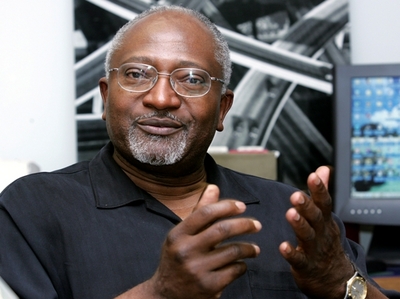Black businesses also need to be stimulated in these tough economic times. Atlanta's black-owned firms still face discrimination when it comes to city contracts. This is not a small point since more than 60 percent of the employees of minority-owned firms are people of color. According to a 2006 disparity study, black and other minority-owned firms accounted for 48 percent of city service contracts in fiscal year 2005, up from 33 percent in 2001. Minority firms won $150 million of the total $312 million contracts in 2005 for private construction, engineering and related services. The expansion of Hartsfield-Jackson Atlanta International Airport was fertile ground for contracts. However, minority firms received a much smaller share of city goods and commodities contracts.
With nearly 64,000 firms, Metro Atlanta is home to more black-owned businesses per-capita than anywhere in the U.S. except the nation's capital. These firms employ mostly African Americans. This shortchanging of black-owned firms will likely continue unabated if some type of "set-aside" program and stronger accountability and transparency in tracking the use of all federal funds for economic stimulus and job creation. The awarding of stimulus dollars is one clear signal that we are not living in a "post-racial" society--even with the election of President Barack Obama, the nation's first black president.
Conclusion
Clearly, race underlies and interpenetrates with other factors in explaining much of the socio-spatial layout of residential amenities in our Atlanta and the surrounding suburbs, including the quality of schools, the location of job centers, housing patterns, streets and highway configuration, and commercial development. Many factors in our social environment contribute to or detract from the health and well being of individuals and communities. These factors include socioeconomic status, transportation, housing, access to services, discrimination by social grouping (e.g., race, gender, or class), and social or environmental stressors. Inequitable distribution of these conditions across various populations is a significant contributor to persistent and pervasive health disparities in Atlanta.
Although Atlanta's share of the metropolitan population has declined over the years, the health of this majority African American city is still important to the overall metropolitan region's vitality. Atlanta is going green and becoming more sustainable at an accelerated rate. Black Atlanta is shrinking demographically and politically at the same time the city's public infrastructure is being dismantled. A "Green Atlanta" needs a healthy Black Atlanta. If current trends hold, Green Atlanta will bypass Black Atlanta. Metro Atlanta needs a strong regional transit system. Black businesses need to be included in the new green economy.
(Note: You can view every article as one long page if you sign up as an Advocate Member, or higher).





